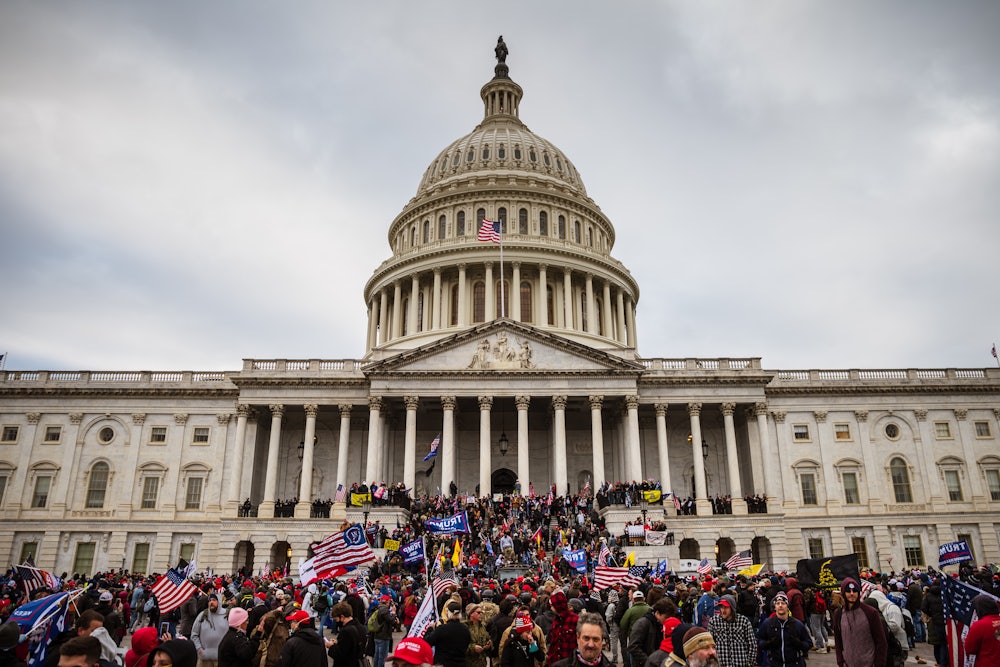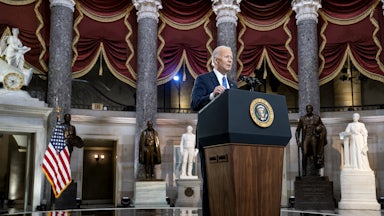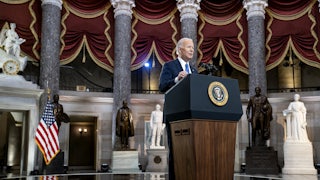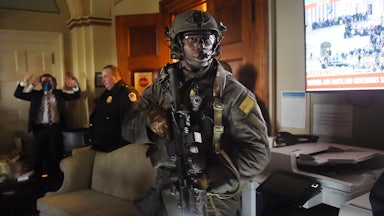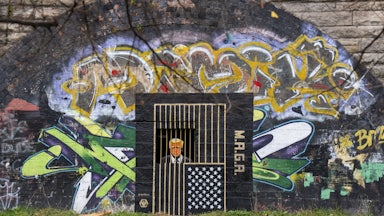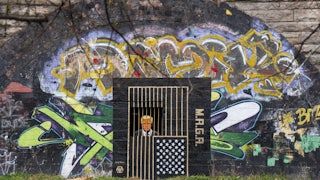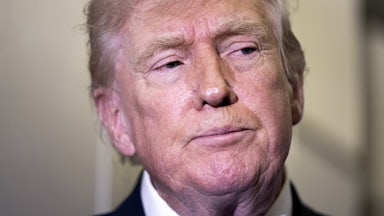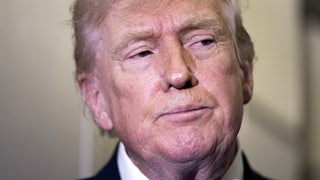The one-year anniversary of the January 6 Capitol riot, fomented by former President Donald Trump and his Big Lie, has naturally served as a moment of reflection on the current state of our nation’s democracy and whether the threats that so harrowingly and shockingly emerged that day ever really went away. But as these commemorations advance these important discussions, another more toilsome question continues to unfold in the background: What will happen to those who actually participated in the attack on the U.S. Capitol? The manner in which these defendants are held accountable could play a large role in whether our democracy emerges from this storm intact.
This week, a bevy of reporting has offered a fairly comprehensive look at the gargantuan process already underway: herding the more than 700 people currently charged with January 6–related crimes through the criminal justice system (with many more to come). Unsurprisingly, it’s a bit of a mess. Individual judges have been left to weigh the merits of each case based on the available evidence and the room provided by prosecutors who have been eager to craft plea deals, as BuzzFeed’s Zoe Tillman has reported. Judges have been left to determine whether jail time is appropriate; in many instances, they are issuing combo-platter sentences with a variety of punishments, ranging from fines to home confinement to counseling. Nevertheless, there are some emerging themes: More than half of those charged with misdemeanors have, according to Tillman, “received sentences that were lighter than what the government recommended as far as loss of liberty.”
According to Politico’s Nick Niedzwiadek, “Judges aren’t enamored with the low-level plea deals” that have taken place, and in general they view the events of that day as far more consequential than the charges filed against the participants for crimes such as “illegal parading” suggest. Nevertheless, they have been “wary about imposing long prison terms except when violence, or the threat of it, was involved.” Subsequently, the first wave of defendants have not been saddled with long prison sentences.
The state of these sentences raises important questions about what justice should look like in cases like these. Are light sentences that avoid lengthy spells in jail truly commensurate with the popular idea that an insurrection took place on January 6? There are some caveats to consider. As most of the extant reporting takes pains to note, some of the more serious and complicated prosecutions have yet to take place, including cases of defendants accused of violence against Capitol Police officers and others who are cooperating with investigators in search of bigger fish to fry. And it’s worth keeping in mind that it’s simply more difficult to successfully charge defendants with crimes such as sedition and treason because the statutory standards for those offenses tend to be (appropriately) more challenging to meet. Crimes, ultimately, have to fit statutes, and punishments need to fit those crimes.
Beyond the requirements of the law, there is still a strong case to be made for mercy. For one, the judges are wise to consider the big-picture needs of our democracy and make any possible effort to lower the temperature. One of the last things we need is to create, from this abundance of potential defendants, a huge population of martyrs that an authoritarian movement can mythologize for its own illiberal ends. As The Washington Post reported in August, most if not all of the judges have gone to considerable lengths in plea and sentencing hearings to puncture the idea that the defendants are being held responsible for their political ideas or their misguided notions of patriotism. One district judge, in fact, characterized a defendant as “a pawn in a game that’s played and directed by people who should know better,” as Tillman reports.
The attack on the Capitol was ultimately a product of “The Big Lie”—the ongoing campaign of the former president and his inner circle to falsely characterize President Biden’s legitimate win as a stolen election. And with that in mind, the harshest opprobrium should be for the Big Liars—not those who were taken in by their deceptions. The judges’ restraint in handing down punishments, so far, seems to be keeping this in mind. At the same time, as Tillman reports, “No judge has found that individual rioters weren’t culpable because they were corrupted by online conspiracy theories or inspired by Trump.” As one judge put it during a sentencing hearing, “No one was swept away to the Capitol.… No one was carried. The rioters were adults.… There may be others who bear greater responsibility and who also must be held accountable, but this is not their day in court, it is yours.”
It’s reasonable to expect ordinary people to regard those who participated in the Capitol riot with a mixture of fear and anger; it’s natural to want to see these defendants punished to the fullest extent of the law. Judges exist to temper those emotions and restore balance in the pursuit of justice. It’s important to remember that even people whom we disagree with, or don’t like, deserve fair treatment under the law. And it’s to our benefit if justice is served with a helping of perspective, even mercy—that we break the cycle of retribution and leave room for both truth and reconciliation. One year after one of the worst days in U.S. history, this work seems to be getting done slowly, but getting done right.
This article first appeared in Power Mad, a weekly TNR newsletter authored by deputy editor Jason Linkins. Sign up here.
